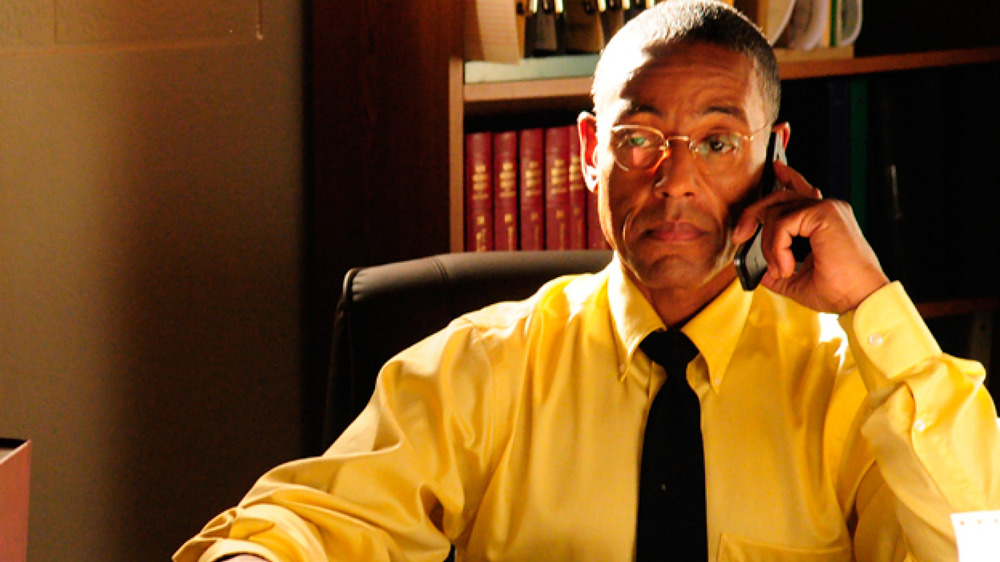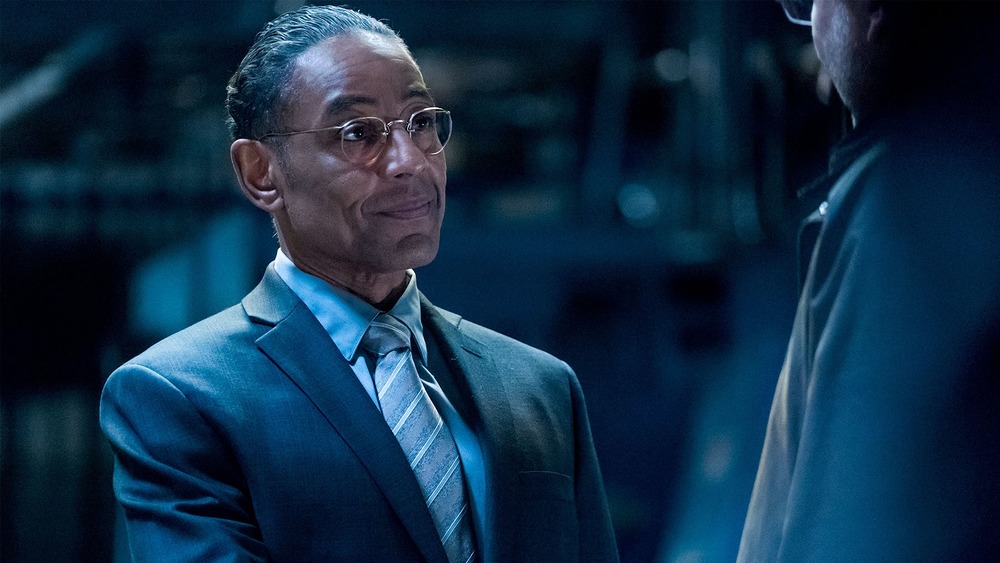The Gus Origin Story We Never Got To See In Breaking Bad
There are certain characters that you just know would thrive wherever you dropped them. Put them in Mad Men, they'd make partner by the end of the week. Toss them into Deadwood and the whole territory would be quaking in their boots in less than a month. Insert them into Game of Thrones and they'd be sitting on the big, iron one in three seasons flat.
Breaking Bad and Better Call Saul's Gus Fring (Giancarlo Esposito) ended up first in Mexico and then in the American Southwest in the late 1980s, where he quickly set about exploiting the twin appetites for fast food and hard drugs, establishing a restaurant franchise, Los Pollos Hermanos, and a meth enterprise with his partner, Max Arciniega (James Martinez). His businesses thrived in both realms. He was an empire-builder, pure and simple.
But, as Esposito told Esquire in an interview about his work on The Mandalorian and the rest of his career, Gus had to learn it somewhere. "I have this whole storyline in the back of my head that he came from political royalty," he said. "I feel like Gus came from the world of order. And that his order came. He was a military man. Out of the military, he gained the ability to observe. You can't lead unless you can follow ... "
Gus has a mysterious past in his home country of Chile
In Gus' case, that world of order would have been the Chile of the dictator Augusto Pinochet, whose military government jailed, tortured, or killed tens of thousands in an effort to quash dissent after rising to power in 1973. Gus' exact role in the regime was never specified, though Hector Salamanca refers to him as "generalissimo" and Don Eladio Vuente tells him he's only alive because his reputation preceded him. What we do know is that he left Chile for Mexico in 1986, and three years later came to the United States and began expanding his ventures, both legitimate and criminal.
In Esposito's mind, this was very much a choice, and one that Gus didn't necessarily have to make in order to accumulate power and wealth. "In my brain, he was high up in a military government," he explained. "He could have stayed there and ran the country. It was handed to him. But he chose a different path to be his own man and to find his own power, regardless of what he was handed. This is what he chose."
That tracks with what audiences know of Gus, who seems the type to rise to the top no matter where he is. What exactly that meant in Chile, audiences may have one last chance to learn when the sixth and final season of Better Call Saul airs on AMC in 2021.

